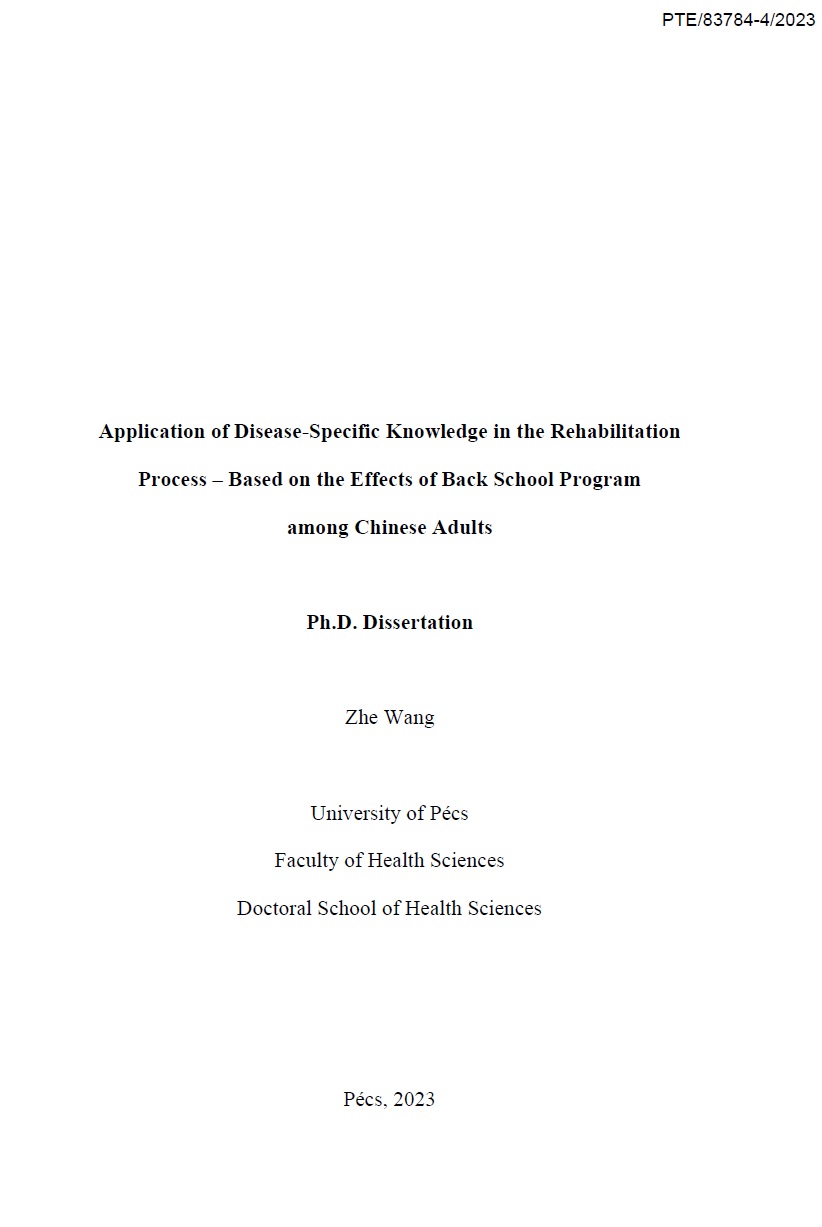Application of Disease-Specific Knowledge in the Rehabilitation Process – Based on the Effects of Back School Program among Chinese Adults
Abstract
Low back pain (LBP) is a symptom that affects health globally and involves people of all ages. The increased sedentary behavior in modern life has also raised the risk of developing LBP. The Back School program (BSP), an intervention for LBP, has gained recognition for its efficacy in many countries. However, fewer studies have reported on the application of BSP in East Asia. This thesis focuses on applying disease-specific knowledge in the rehabilitation process of LBP. It contains three sections: (1) the cross-cultural adaptation and validation of the simplified Chinese version of the LBP knowledge questionnaire among 428 people; (2) the effects of the BSP on 11 participants’ physical performance, knowledge of LBP, physical activity, and disability of life; (3) looking back at the history over the past 41 years of LBP self-efficacy and investigating future trends and frontiers.
This thesis verified the reliability and validity of the simplified Chinese version of the Low Back Pain Knowledge Questionnaire, applied this disease-specific knowledge questionnaire as one of the measurement tools to the BSP, and found the effectiveness and limitations of the Chinese BSP in clinical work. Meanwhile, the research application and development of self-efficacy in LBP were obtained in bibliometric analysis, and the forefront of this field was predicted.

